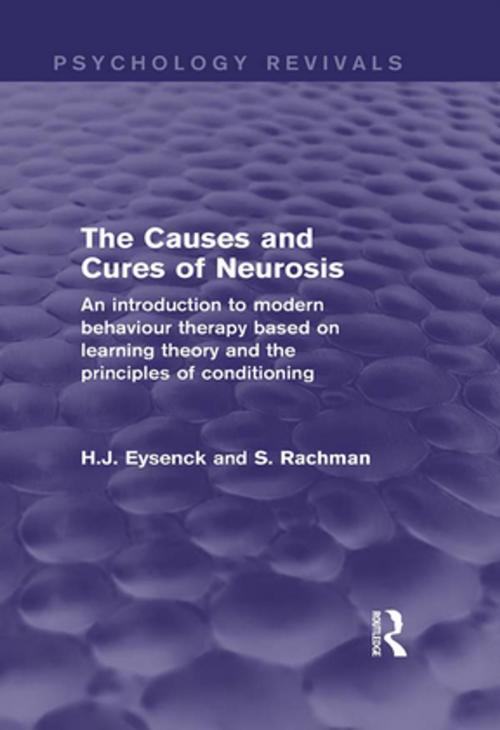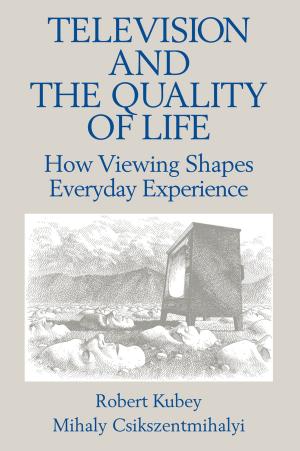The Causes and Cures of Neurosis (Psychology Revivals)
An introduction to modern behaviour therapy based on learning theory and the principles of conditioning
Nonfiction, Health & Well Being, Psychology, Pathological Psychology, Clinical Psychology, Psychotherapy| Author: | H.J. Eysenck, S. Rachman | ISBN: | 9781135021412 |
| Publisher: | Taylor and Francis | Publication: | November 26, 2013 |
| Imprint: | Routledge | Language: | English |
| Author: | H.J. Eysenck, S. Rachman |
| ISBN: | 9781135021412 |
| Publisher: | Taylor and Francis |
| Publication: | November 26, 2013 |
| Imprint: | Routledge |
| Language: | English |
Originally published in 1965 this book was an introduction to post-Freudian methods of diagnosing and treating neurotics of the time. These methods were known collectively as ‘behaviour therapy’, a term indicating their derivation from modern behaviourism, learning theory, and conditioning principles. In the early twentieth century John B. Watson pointed out that ‘psychology, as the behaviourist views it, is a purely objective experimental branch of natural science. Its theoretical goal is the prediction and control of behaviour.’ Behaviour therapy attempts to extend this control to the field of neurotic disorders, and in doing so it makes use of experimental laboratory findings, and of theories based on these. It was seen as the very opposite of the position taken by psychoanalysis.
The authors believed that, by the late twentieth century, behaviour therapy would be ‘firmly established as one of the most important, if not the most important, weapon in the hands of psychiatrists and clinical psychologists’.
Originally published in 1965 this book was an introduction to post-Freudian methods of diagnosing and treating neurotics of the time. These methods were known collectively as ‘behaviour therapy’, a term indicating their derivation from modern behaviourism, learning theory, and conditioning principles. In the early twentieth century John B. Watson pointed out that ‘psychology, as the behaviourist views it, is a purely objective experimental branch of natural science. Its theoretical goal is the prediction and control of behaviour.’ Behaviour therapy attempts to extend this control to the field of neurotic disorders, and in doing so it makes use of experimental laboratory findings, and of theories based on these. It was seen as the very opposite of the position taken by psychoanalysis.
The authors believed that, by the late twentieth century, behaviour therapy would be ‘firmly established as one of the most important, if not the most important, weapon in the hands of psychiatrists and clinical psychologists’.















